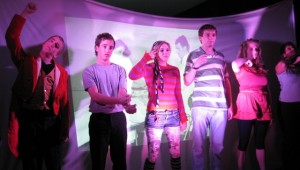It’s Silver Surfers’ Day and even if you don’t like the name of the annual event (for something so future-focused, it sounds dated), who can argue with its aim of promoting digital technology among older people?
Take 79-year-old David Le Clair, for example, who’s learning new computer skills which he hopes will help him to write a book about his life. David is a resident of James Hill House, an extra-care scheme run by housing association Octavia Housing in west London, and has just joined his social landlord’s free IT training project for older people.

According to Digital Unite, the provider of digital skills in the community behind today’s annual event, around nine million people, many of whom are aged over 50, “continue to be excluded from large parts of daily life because they have no access to a computer and are not online”. Silver Surfers’ Day is the culmination of a week of events to encourage computer skills in the community, aiming to introduce older people to technology at a local level through libraries, community centres, schools and sheltered housing schemes, with taster sessions, for example. This year’s Silver Surfers’ Day coincides with Digital Day, part of Adult Learners Week.
At James Hill House, the digital course David is on is being taught using extra large screens and keyboards and shows older people how to use the internet, webcams and how to create Word documents. Funding from the government’s former Get Digital programme means residents now have their own camcorder, colour printer, TV and Wii games console too. The digital room is always open but residents can also use a laptop if they want to use the technology in their own flats.
The aim, says Octavia Housing, is to enable older people not only to use these technologies to connect with their family and friends, but to pursue their own projects of interest. For David, a former policeman, it is a chance to use the internet to reconnect with his past including his time in Nigeria where he lived for over 50 years. He’s hoping this will help him write his life story.
Vlado Veljanoski, James Hill House scheme manager, says the benefits go beyond simply sending emails or looking up things online: “Our residents now help to put together quiz nights and have developed interests in creating their own websites; two of them would like to showcase their paintings on the internet, others have interests in flowers and plants.”
Veljanoski and the James Hill House residents know that getting online brings more than simply social benefits but new research published yesterday suggests that the practical advantages are not exploited by older people. Research by the Payments Council, the body that sets the UK’s payments strategy, showed that, despite increasing numbers of over-55s getting online, not many take advantage of online or telephone banking. In a survey of 4,500 adults across the UK earlier this month, says the Payments Council, only 32% of over 55s use either telephone or internet banking, and only 24% of over 65s, compared with 60% of 16-24 year olds, 71% of 25-34 year olds, 69% of 35-44 year olds and 57% of 45-54 year olds.
While technology allows isolated or vulnerable people to access online social networks – to complement face to face interaction, not replace it – digitial inclusion is equally important for an ageing popultion from a more practical perspective, encouraging new, time-saving ways to manage daily chores, accessing public services or locating information online. Given that public sector and gassroots organisations are key to spreading the digital message in communities, how long before the digital drive is adversely affected by the spending cuts impacting on other local services and campaigns?
Whether silver surfers are just dipping a toe into the digital waters like David in west London, or are on the same tech-savvy wavelength as their younger counterparts (sorry – the title of today’s campaign makes obvious puns irresistable), the reasons to get online are brilliantly put by an older IT-fan from a previous blogpost, “When you get to your 90s you feel you want to keep up with things.. it makes you feel you’re up with the world.”




 (I do hope that’s royal icing on there…)
(I do hope that’s royal icing on there…)
